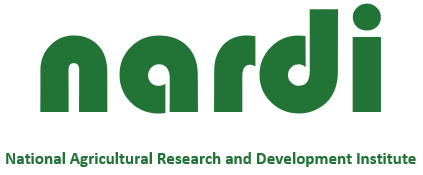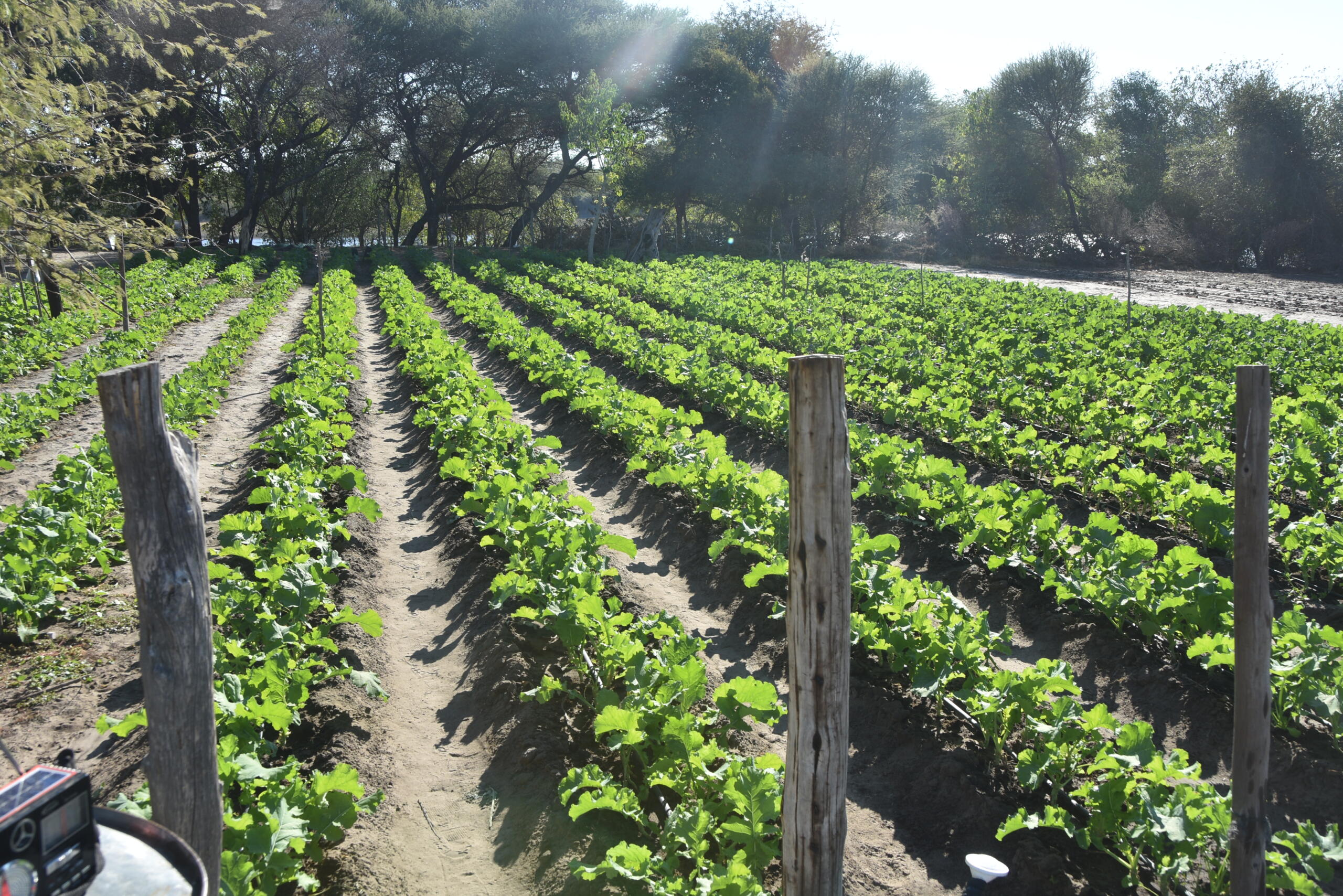The department of Field Crops and Horticulture undertakes research in the areas of field and horticulture crops to enhance agricultural efficiencies, farm incomes, and advancement of knowledge and promote NARDI as a global Centre of excellence in Research and Development. In the long term, the DFC&H will be fully fledged with the establishment of seven (7) major programs and three (3) minor programs. These programs include 1) Cereal Crop Improvement, 2) Grain Legumes Crop Improvement, 3) Oil Seed Crop Improvement, 4) Fruit trees and nuts 5) Vegetable Crop improvement, 6) Plant Breeding and Biotechnology, 7) Sustainable Cropping Systems while the minor programs are 1) Climate Smart Crops/Neglected and Underutilized Species (NUS), 2) Industrial Crop Improvement and 3) Floriculture/Ornamental. However, at the commencement of NARDI operations only three programs will be initiated under NARDI Strategic Plan 2022-2026 as follows.
2.1 FIELD CROPS PROGRAM
Arable farming is a major source of employment and income for the majority of the rural populace. However, crop production is a highly risky venture due to its heavy reliance on rainfall, which is low and erratic, and relatively poor soils. Rain-fed production is dominated by small-scale farmers, who do not use good agronomic practices, hence they achieve poor crop yields. On average crop yields for major staples (sorghum, maize, and millet) observed for a period of 40 years from 1979 – 2019 seldom exceeded 300 kg per hectare (Statistics Botswana 2019). Therefore, lower production of approximately 20 % of the annual demand of basic grain of 300,000 tons is recorded in the country. Consequently, Botswana imports a significant bulk of grain crops every year.
Previous studies showed that yields can be increased from a current average of 0.3 tons/ha of grain to 1-3tons/ha under the same climatic conditions with the use of improved technologies. The NARDI aims to make agriculture more competitive and reduce the country’s reliance on imports of agricultural produce that can be feasibly produced locally. This will be achieved by setting up programs that enable farmers to improve their level of management and use of the latest technologies. Key projects that will be housed by the programme include
a) The Improvement of yield of common food grains (sorghum, maize, millet and cowpeas) and oil seed crops.
b) Seed Production Development to unlock food system value chains
c) Viability testing, economics and competitiveness assessments of selected non-traditional high value crops (wheat and rice).
2.2 HORTICULTURE
Agricultural sector is a key area with great potential to diversify the economy and create employment, especially through the horticulture sub-sector. Pomology (fruit trees), Olericulture (vegetables), Floriculture (ornamental and landscaping) and Post-harvest processing are the main branches within the horticulture sub-sector, which NARDI plans to explore aggressively. Horticulture holds great potential for economic development, but there is currently low production of fruits and vegetables, which fail to meet the local demand of 112 000 metric tonnes annually. Lack of capacity and technology, high input costs for fertilizers, seeds, seedlings, and packaging are the key constraints that restrain development of the horticultural value chain (Horticulture Sector Value Chain Analysis and Action Plan, 2015). Therefore, farmers tend to use low quality seeds, have low production and this leads to unreliability of local supply, low quality of produce and high post-harvest losses.
Under the Horticulture Programme NARDI will undertake the following initiatives;
a) Capacity building for increased and sustainable horticultural production focusing on crops restricted for importation.
b) The Horticulture program will collaborate with MoA on Horticulture Impact Accelerator Subsidy (IAS)
c) program, to develop climate smart agricultural practices that include seedling development protocols.
d) Viability testing, economics and competitiveness assessments of selected non-traditional high value crops will also be conducted on olives and dates.
2.3 CLIMATE SMART CROPS/ NEGLECTED and UNDERUTILIZED SPECIES (NUS) PROGRAMME
The Climate Smart Crops programme will focus on the development of a domestication strategy for the Neglected and Underutilized Species (NUS). NUS are indigenous, wild plants not yet integrated into mainstream agriculture. These have a potential to contribute to sustainable food systems. Impacts of climate change are already reducing agricultural productivity on major crops thus increasing food insecurity. Most NUS are nutrition-dense and have nutraceutical properties, which are their attributes of climate health co-benefits. Examples include indigenous teas (Langana, Mosukujane), Morama bean (Tylosema esculentum) and Kgengwe (Citrullus lanatus var. citroides) valued for their oil rich characters.
Major challenges of NUS include limited distribution, low abundance and are found in specialized habitats. In addition, they are vulnerable particularly to over-exploitation and have poorly developed value chains. Domestication and cultivation of NUS would diversify the agricultural sector and will enhance the resilience of agricultural production system.
This programme will drive initiatives that aim to domesticate, promote production and commercialization of selected NUS with high economic potential, such as lengana (Artemisia afra), mosukujane (Lippia javanica), morama bean (Tylosema esculentum) and Kgengwe (Citrullus lanatus var. citroides). This would inherently lead to diversified value chains, improved household diets and enhanced incomes and livelihoods. Research on establishment and adaptability to different environments, mechanisms affecting growth and yield will be conducted as it is essential for sustainable production.


